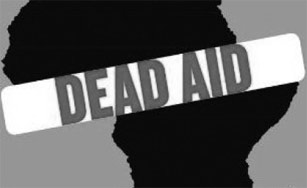Reading Between The Lines: Book explores the problem with African aid

How do you solve the dire financial situations of Africa? If "aid" was ready to leap off your tongue, then Dead Aid is definitely the book for you. Or even if your answer wasn't "aid," you should still read it. Actually, it doesn't matter what you think, read this book anyway.
What exactly is Dead Aid about? Well, to put it simply, it refutes what has been hammered into our minds by countless charity events and World Vision commercials — the message that aid is the end-all solution to resolve Africa's worsening political and economic climate. Author Dambisa Moyo refuses to soften the blow when she writes that African aid simply doesn't work. Those who accusingly jump at aid detractors as heartless simply do not understand the way aid is handled in Africa. Moyo reveals how African nations that receive an unending supply of annual aid actually experience negative economic growth, and how a lot of aid money is often funneled into the pockets of various despots with Swiss bank accounts, and how a country like Botswana, which receives minimal aid, is the leading African nation in terms of economic and societal growth.
So, aid doesn't work, right? Then what CAN be done? Not to spoil anything, but one of the first things suggested is investment, rather than donation. Moyo creates a rather tragicomic story that nevertheless parallels with real-life incidence wherein a well-meaning Hollywood celebrity donates thousands of mosquito nets to an African country, running a local mosquito-net maker out of business. Through this simple story is an example of why investment supersedes mere charity.
Moyo's style of writing is interesting. While without bias, citing her claims (very well, I might add, the bibliography is a whole other world of extra reading) properly, there is nevertheless a hint of frustration present in the writing, as though the author, looking at the examples she was citing, was growing irritated with the realization that despite all these counterpoints against the way aid is handled, it still continues.
This book is an excellent read for supporters and detractors of aid. It not only gives a fresh perspective from the views of an educated (Moyo has a Ph.D. in economics from Oxford University) native African, but also provides ammunition for those wishing to debate against the current state of African aid. Even if you aren't one to pick debates, the book is an interesting (and relatively light, at around 154 pages, excluding the bibliography) read that should be checked out.
Reading Between The Lines explores books that you may have missed out on that are worth your while. If you have a book to suggest, email Eshaan at e_gupta@fanshaweonline.ca.













